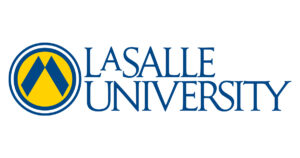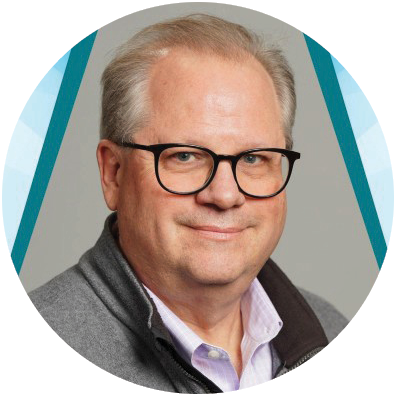 Beginning his career in 1988 at St. Joseph’s University as a media technician, P. David Lees, Ed.D., Director of Distributed Learning & Educational Technology, La Salle University, has had a front row seat to the evolution of technology in higher education. “This field is constantly changing, and it has been a very interesting journey so far,” says Lees. “I started out delivering overhead projectors to classrooms to later facilitating state-of-the-art multimedia classrooms. Toward the end of the 1990s, the institution began exploring distance learning through video conferencing systems, chat rooms, and online instruction. Our first learning management system (LMS) was CourseInfo, a precursor to Blackboard. Being a pioneer that experimented with different technologies has kept my career extremely interesting.” In the late 1990s, the University received a Federal grant to create the Early Responders Distance Learning Center (ERDLC) which worked with government and other agencies to create online training for different first responders. The University was far ahead of its time in implementing distance learning.”
Beginning his career in 1988 at St. Joseph’s University as a media technician, P. David Lees, Ed.D., Director of Distributed Learning & Educational Technology, La Salle University, has had a front row seat to the evolution of technology in higher education. “This field is constantly changing, and it has been a very interesting journey so far,” says Lees. “I started out delivering overhead projectors to classrooms to later facilitating state-of-the-art multimedia classrooms. Toward the end of the 1990s, the institution began exploring distance learning through video conferencing systems, chat rooms, and online instruction. Our first learning management system (LMS) was CourseInfo, a precursor to Blackboard. Being a pioneer that experimented with different technologies has kept my career extremely interesting.” In the late 1990s, the University received a Federal grant to create the Early Responders Distance Learning Center (ERDLC) which worked with government and other agencies to create online training for different first responders. The University was far ahead of its time in implementing distance learning.”
Later in 2012 with government funding ending, the ERDLC was searching for a place at the University. “We had been actively growing our online programs,” explains Lees. “We decided to combine a part of my old department with the ERDLC and created the Department of Academic Technology and Distributed Learning. During my time at St. Joseph’s, we started a Technology Innovation Fund where we would fund technology initiatives to help meet faculty’s learning objectives. In early 2010, there was a grant to provide iPads to faculty members. I later heard from a faculty member how that was such a transformative experience receiving that technology and how it helped advance the teaching and learning experience.”
“The partnership with Edge has been terrific and they have helped with our course development. Our OPM does provide some assistance with instructional design and Quality Matters (QM) reviews, but we did not have anyone internal to work with these organizations and provide daily Canvas support. Enter Joshua Gaul, Associate Vice President and Chief Digital Learning Office, Edge, who comes in and saves the day a lot of the time. We currently have a six-month contract with Edge while we look to hire two positions for an instructor technologist and may extend that based on our needs. Josh is also helping us with this interviewing process and finding suitable candidates.”
— P. David Lees, Ed.D.
Director of Distributed Learning & Educational Technology, La Salle University

Filling Skills Gaps as Online Learning Grows
Joining La Salle University in 2017 as the Director of Online Hybrid Learning, Lees says the institution had just partnered with an online program management (OPM). “For most of my career, I had been on the faculty development side of online learning. With this new role, I had to broaden my scope and dive further into the business end of online learning, including marketing, enrollment, and retention. I have continually championed the OPM, because we’ve been able to grow our programs. In the fall of 2017, La Salle launched an online Registered Nurse-Bachelor of Science in Nursing (RN-BSN) and Master of Business Administration (MBA). In 2019, we launched two Nurse Practitioner tracks with the OPM, which brought our online offerings to nearly 20 programs.”
However, Lees did keep his ties with faculty and course development, “When I joined La Salle, the instructional design team did not report to me, but we worked closely together. After a couple of years at the University, there was a reorganization, and the ID Team began reporting to me.” Hence, the Distributed Learning and Educational Department was born.
Lees earned his master’s degree and doctorate at a distance in the early stages of the online revolution. “From my experience as an online student, and in developing online courses, and as an online instructor, I gained valuable insight into remote education.” Last year, after members of the ID team resigned, Lees was left to learn Canvas very quickly and cover the tasks of several people. “Thankfully, I had just signed up for an Edge conference and learned about the support Edge could provide, so I got in touch with the Member Engagement Manager, Erin Brink,” says Lees. “The University incorporated new technologies during the pandemic which the ID Team had to manage, and we still had programs to launch in the summer of 2023. The support from Edge allowed us to keep moving forward.”
“The partnership with Edge has been terrific and they have helped with our course development,” Lees continues. “Our OPM does provide some assistance with instructional design and Quality Matters (QM) reviews, but we did not have anyone internal to work with these organizations and provide daily Canvas support. Enter Joshua Gaul, Associate Vice President and Chief Digital Learning Office, Edge, who comes in and saves the day a lot of the time. We currently have a six-month contract with Edge while we look to hire two positions for an Instructional Technologist and may extend that based on our needs. Josh is also helping us with this interviewing process and finding suitable candidates.”
Similar to many institutions in higher education, Lees says finding and retaining instructional designers has been challenging. “Instructional Designers or Instructional Technologists are in high demand, but have only stayed short term, oftentimes only a year. We’ve tried to remedy this with competitive salaries and offering professional development, but many times, these individuals move to larger institutions or corporate organizations. While instructional design tasks can regularly be performed remotely, we like our designers to be on campus, but we’re trying to offer more flexibility to help attract talent to La Salle.”
Lees says having Edge’s support has also helped the University launch four master’s programs and six certificates this past summer. “Many of these courses had been built but needed revisions. We’re also launching stackable certificates in the business school in January. While we receive support from our OPM, Josh has taken on some of the heavy lifting and handled many of the daily tasks that I do not have time to do; allowing me to focus on other important initiatives.”
Embracing Technology to Enhance the Learning Experience
As new technologies continue to evolve, artificial intelligence (AI) appears to be front and center and is driving many thought leaders to explore the potential opportunities and capabilities of this advanced technology. “There is a lot of hype around AI, but I think this technology will have a fundamental change on how we’re doing things across many industries, including higher education,” says Lees. “In many of our discussions, we’re seeing how AI can transform teaching, change how students learn, and offer tutoring and deeper critical thinking opportunities. While we’re in the Wild West phase of AI, it will take ongoing discussions and creativity to determine how to harness this technology in the most beneficial and impactful way. Just like video, iPads, and SMARTboards help transform education, technology like AI will take us into a whole new era of learning.”


